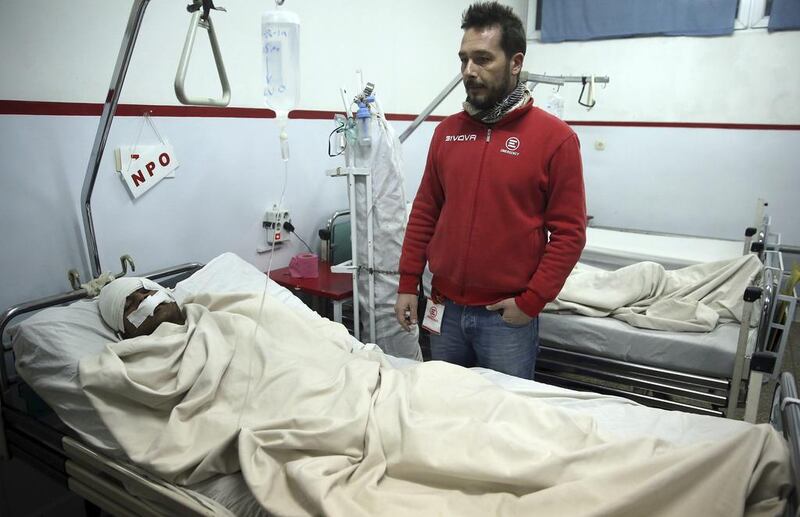KABUL, AFGHANISTAN // A teenage suicide bomber attacked a French-run high school in Kabul on Thursday, walking into a packed auditorium during a theatre performance and killing a German citizen.
The Taliban claimed responsibility for the bombing, saying the performance underway was immoral.
It was the first attack on a foreign target in the Afghan capital in more than a week and came after a series of insurgent bombings in the past month targeted foreigners, killing a British embassy security and three members of a South African family.
Acting interior minister, Mohammad Ayoub Salangi said a German was killed, while police chief Gen Abdul Rahman Rahimi identified the victim as a man.
A German foreign ministry spokesman said the embassy in Kabul was in contact with Afghan authorities but that there was no reliable information on possible victims and their nationality. Germany plans to deploy up to 850 soldiers to the Nato-organised training and advisory mission in Afghanistan from January, which will take over after the alliance’s combat troops leave the country.
Thursday’s attack took place inside the auditorium of the French Cultural Centre, inside the Estiqlal High School, run by the French government.
Mr Salangi said that 10 Afghan citizens were wounded in the attack, including journalists covering the event. The bomber, who wore explosives hidden in his clothing, was probably around 16 years old, he said.
French president Francois Hollande condemned the “odious attack” and extended France’s solidarity to the victims and their families. “By attacking this target, the terrorists were targeting culture and creativity,” Mr Hollande said.
France’s foreign minister Laurent Fabius said there were no French citizens among the wounded and urged that everything be done “to identify the authors of this barbarous act and bring them to justice”.
At the time of the attack, the centre was hosting a musical play entitled Heartbeat: Silence After the Explosion,which the Taliban said was immoral, and held under the aegis of the "foreign invaders". All civil society gatherings were potential targets, the Taliban said.
A witness said the bomber walked into the cultural centre’s amphitheater and detonated the explosives inside the building.
Other witnesses said the explosion happened at the back of the hall, near an array of television cameras and journalists covering the event.
The head of Media Watch, an Afghan press freedom watchdog, Sidiqullah Thawhidi said that three journalists – two cameramen and a reporter – were among the wounded.
Also among the wounded was Naser Sarmast, a renowned musician and head of the Musicians’ Institute of Afghanistan, according to the Education Ministry.
“I was watching the drama, my students were preforming music, I heard a blast and fell down,” Mr Sarmast said.
“I thought it was part of the drama, until I touched my head and saw that it was bleeding and I fell down again.”
Homan, who uses one name and was acting in the play, said: “There was a big explosion and we just ran from the stage. It was horrible.”
Analysts say the Taliban are choosing foreign targets to ensure maximum publicity.
The attack followed another suicide bombing claimed by the Taliban, which targeted a military minibus earlier on Thursday.
Six Afghan soldiers were killed in that explosion, and another 10 people including civilians were wounded.
Afghanistan’s insurgency has intensified in recent months and the violence is expected to continue as the international military mission led by the United States winds down toward the end of the year.
US and Nato soldiers will draw down to around 13,000 from Januuary 1, from a peak in 2010 of 140,000, as the Afghan security forces assume full sovereignty over the country’s security.
* Associated Press





